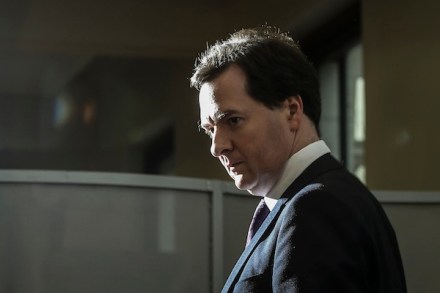Budget 2013: Live
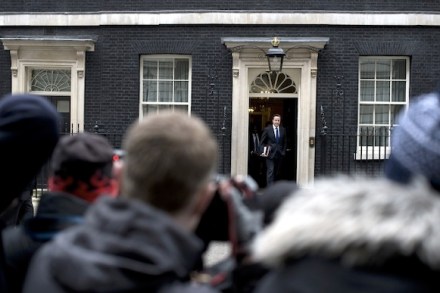
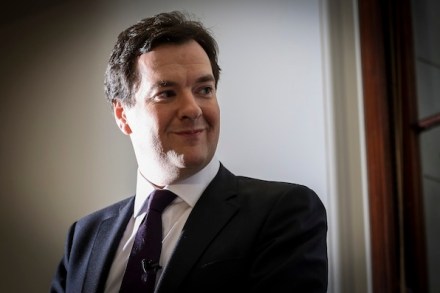
The Treasury has largely managed to maintain discipline in the run-up to the Budget, with only controlled briefings in the past few days, rather than last year’s public row over tax cuts. Yesterday we were told about the additional departmental spending cuts to fund infrastructure: the pain has already been briefed so that today the £2.5billion raised from cuts can be painted more as gain. There are also some carefully-placed stories on the front pages this morning, too. Last year’s Budget didn’t have much in it for Sun readers: the pasty and caravan taxes did for any suggestion that the government was on their side while it cut the top
For many people, Budgets are when you find out if your pint of beer or bottle of wine is going up in price. It’s the day you fill up your car just in case fuel goes up again. It’s the day you hope to see a tax cut that puts some more cash in your pocket or helps your business grow. Generally it’s a day the average person lives in hope and prepares to be disappointed. That’s the nature of Budget day. This year is different. They say that this Budget will be highly political. If so, as soon as the doors open, the Commons’ corridors will be buzzing with
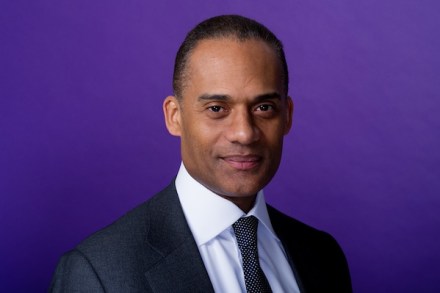
A fascinating poll result from Ipsos MORI today. They ask, essentially, whether people agree with the government’s ‘Plan A’ or Labour’s ‘Plan B’. Specifically, they ask: ‘People have different ideas about the best way of dealing with Britain’s economic difficulties. Which of the following do you most agree with? A1: Britain has a debt problem, built up over many years, and we have got to deal with it. If we don’t, interest rates will soar. That’s why tackling the deficit and keeping interest rates low should be our top priority. OR B1: Without growth in our economy, we are not getting the deficit down and are borrowing more. We need

Imagine if a Chancellor stood up and announced that those earning up to £100,000 would pay a 40p tax rate, those earning £100,000 to £112,950 will pay a 60p rate, and those earning above £112,950 will pay the 40p rate, and then the top earners will pay a 50p rate. That’d be crazy, right? But that’s exactly what Alistair Darling announced in his 2009 Budget. So how did he get away with it? By delivering his announcement in code. Instead of talking about marginal tax rates, he described the move as withdrawing the personal allowance for those with incomes over £100,000. The language may be different — and may sound


It’s the last Treasury questions before the Budget today, and MPs will have a final chance to push the Chancellor on what it is that they want from the Budget. There are those who are instinctively loyal to the Tory leadership and want a Budget that comes and goes without fireworks or failures. ‘Just steady as she goes, please,’ one loyalist says. Within that group are MPs who are desperate for a cost of living Budget. Then there are those MPs who are not loyal, and who, even if they don’t admit it, would quite like a messy Budget that shows George Osborne up. A wider group of backbenchers includes
I think it is fair to say that Dr Liam Fox has never been one of David Cameron’s chief chums. The former Defence Secretary has, as Paul Goodman notes, been closer to George Osborne. Be that as it may, his speech today is a fine reminder of Dr Fox’s political limitations. This is the kind of stuff – and the kind of man, frankly – that helps explain why the Conservative party has not won a general election majority since 1992. Think on that and think on how much Britain has changed these past 21 years and how little the Tory party has. Dr Fox ignored all this, delivering a

The idea of an ‘empty budget’ later this month is disappointing those who backed George Osborne in the hope of his fixing the problems he so eloquently outlined in opposition. If Brown proposed cutting the deficit by 33 per cent over two years, newspapers who criticised him at the time for lacking ambition — as Osborne did — can hardly be expected to applaud the Chancellor for cutting it by just 25 per cent over three years. Faster progress is needed: on the deficit, and on economic growth. There are many tools that can be used and the Sunday Telegraph describes a few of them today in its leading article. It’s an

1. The plan: To limit the bonuses that can be paid to bankers to the level of their salary. Any higher bonus would need the approval of shareholders (65 per cent of votes cast if a quorum of 50% of shareholders is reached; 75 per cent of votes cast otherwise) and a quarter of it would have to be deferred for five years — and even then the bonus could not exceed double the salary. 2. Where does the proposal come from? The European Parliament. MEPs insisted on the cap to be included in a package of banking reforms. Initially, they wanted simply wanted to cap bonuses at the level of


Before every Budget, George Osborne always seeks the advice of various MPs. He usually doesn’t heed it but it’s a good way, he thinks, to keep the troops happy. As the economic headwinds have strengthened, this advice has tended to be increasingly radical and in a recent meeting with the Free Enterprise Group of Tory MPs, the Chancellor made clear he was in no mood for it. ‘Look,’ he told them, ‘I tried radicalism in last year’s Budget, and I had blowback for it. So I’d take quite some persuading to do something radical this time.’ The MPs left with the clear impression that he is now preparing what will

David Cameron needs a Willie. So say the ministers who work most closely with No. 10. It is not a call for shock-and-awe radicalism, but for someone who can help the Prime Minister as the late Willie Whitelaw helped Margaret Thatcher — gliding around Whitehall, pushing forward the Cameron agenda, smoothing over difficulties and ensuring that Downing Street’s writ runs in every department. Whitelaw did the job superbly for eight years; it is no coincidence that things started to go wrong for Lady Thatcher after a stroke forced him to give up his role. But Cameron doesn’t have a Willie. He has the opposite of a Willie: a Deputy Prime
What sort of Budget will George Osborne unveil on 20 March? In this week’s Spectator, Fraser Nelson predicts that it will be an empty one, devoid of radicalism. The piece outlines one meeting in which the Chancellor explained why he is feeling so cautious: Before every Budget, George Osborne always seeks the advice of various MPs. He usually doesn’t heed it but it’s a good way, he thinks, to keep the troops happy. As the economic headwinds have strengthened, this advice has tended to be increasingly radical and in a recent meeting with the Free Enterprise Group of Tory MPs, the Chancellor made clear he was in no mood for
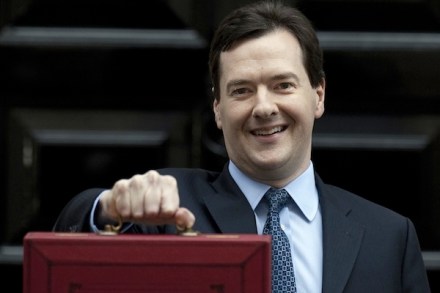
Panic, once let loose, is hard to corral. And there seems to be plenty of panic on the Tory benches at Westminster. The Eastleigh by-election result, the stagnant economy and the rising sense that the Prime Minister has somehow lost his way all contribute to this. Each fresh setback – or perceived setback – now has an impact disproportionate to the actual size or importance of the problem. These things are no longer measured on a linear scale. Read, for instance, Ben Brogan’s analysis in today’s Telegraph and you will perceive an under-current of deep panic presently afflicting the Tory tribe in London. Similarly, when Paul Goodman is writing –

The 2013 budget promises to be a milestone for David Cameron’s government. George Osborne is under pressure to avoid the ‘omnishambles budget’ of last year. As well as satisfying his increasingly-militant ministers, angry backbenchers and coalition partners, the window for making a real difference in time for the next election is closing. Any seismic shifts planned by Osborne and Cameron will have to be made soon. Coffee House will be providing extensive coverage throughout the day but we’re delighted to offer something special. On the evening of 20 March, the Spectator will be hosting a special event in central London with Fraser Nelson and James Forsyth. Chaired by Andrew Neil,

Philip Hammond is a cautious and loyal politician. He is not a boat rocker. This is what makes his interviews in the Telegraph and The Sun today so noteworthy. He would not have started conducting spending negotiations in public unless he felt he had to and that he had a chance of success. Hammond tells The Sun his case is this, ‘You take half a percent out of the welfare budget, you’ve solved the problem in defence — HALF a percent. There is a body of opinion within Cabinet that believes we have to look at the welfare budget again.’ In truth, the argument about the 2015-16 spending round is

One of the things I love about being a classical liberal is that I’m always on the right side of every argument. I’m pro: freedom, jobs, self-determination, cheap energy, higher living standards, academic excellence, property rights, an even better future, Michael Gove MP, wine, women, song. (So long as the song is not by Maroon 5 or Bruno Mars.) And I’m anti: arbitrary authority, nanny-statism, money-printing, tyranny, despair, almost all war, poverty, prohibition, disease, squalor, uncleaned-up dog poo, meddling busybodies, crap capital projects based on massive lies (that means you HS2!), corrupt officials, civil war, totalitarianism, hyperinflation, injustice, Tim Yeo MP. Yet you’d scarcely guess this to read some of

George Osborne spent an hour in front of the 1922 this evening. 40 Tory MPs took the opportunity to promote their own Budget ideas to him. From what I understand, the tone of the meeting was cordial with Osborne in relaxed form. A big theme was the cost of living with three MPs including Rob Halfon pushing the Chancellor on fuel duty. Osborne’s responses were non-committal but significantly he didn’t say that binning the fuel duty rise scheduled for September was unaffordable. Instead, a distinct vibe was given off that these MPs concerns would be accommodated. Two other MPs– Steve Brine and Henry Smith—made the case for a cut in

George Osborne was playing historian today as he responded to Ed Balls’ urgent question on the credit rating downgrade, charting Labour’s role in the UK’s loss of the AAA rating; particularly the deficit it bequeathed the Coalition. But he was in revisionist mood when it came to his own stance. As Ed Balls repeatedly leant across the despatch box and tried to hand the Chancellor a copy of the Tory 2010 manifesto in which the party lists ‘we will safeguard Britain’s credit rating’ as the first of its eight benchmarks, George Osborne told MPs that what he had always said was important was the confidence of the markets. MPs were


Labour has been granted an urgent question in the Commons on the loss of the AAA credit rating this afternoon, and we can expect George Osborne to reiterate his comments over the weekend that this downgrade was a ‘clear message that Britain cannot let up in dealing with its debts’. But will he suggest that the UK can hold onto the AA1 status that it now holds with Moody’s until the end of this Parliament? Announcing the downgrade, the agency said it didn’t expect any changes in the rating over the next 12-18 months. But it added: ‘However, downward pressure on the rating could arise if government policies were unable
The United Kingdom’s triple A rating is now lost with one credit rating agency, Moody’s. This is a politically difficult moment for George Osborne. Back in February 2010, he set keeping the triple A rating as one of the key tests of a Conservative government’s economic policy. His opponents will delight in pointing out that he has failed the test he has set himself, while nervousness on the Tory benches about the coalition’s economic strategy will be heightened by this news. Economically, though, I doubt that this will have much impact. In recent weeks, Britain’s debt has been trading more like that of France, which has lost its triple A
